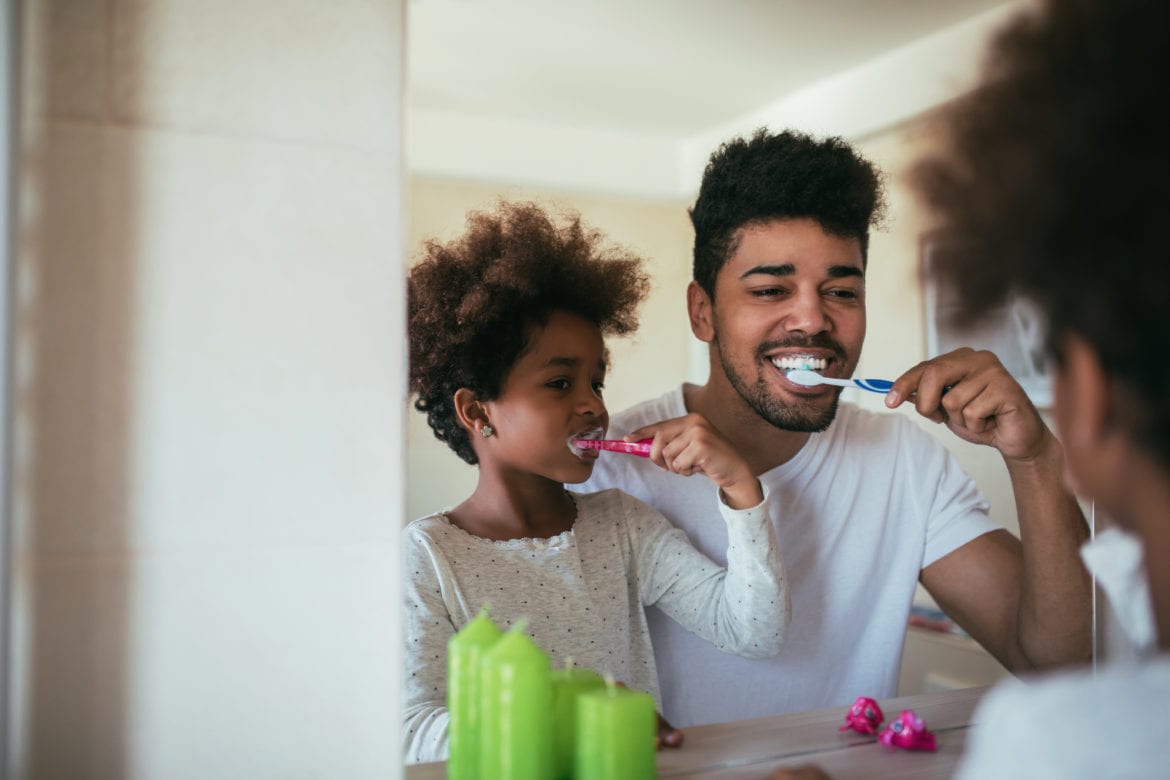Is your kid hooked on sweets? Do they skimp on brushing their teeth properly or fall asleep without brushing at all? We’re all guilty of these slip-ups, but how can we make sure our kids don’t fall into bad habits? Here’s how to overcome the most common dental no-nos.
FALLING ASLEEP WITHOUT BRUSHING
One of the most common problems dentists see is kids who fall asleep without brushing their teeth. “Some of the consequences of skipping your nighttime oral hygiene routine are increased plaque buildup, tooth decay, gum disease, bad breath and increased staining,” says Dr. David Caggiano of Caggiano Orthodontics in Parsippany. “Studies show that there is a direct link between oral health and overall health, including connections between gum disease, diabetes and respiratory problems, among others.”
How to break the habit: Dr. Hassam Sultan of Dentistry for Children in Clifton says your kids should set a clear intention before bedtime, and you should help them create a bedtime routine that makes brushing and flossing non-negotiable. “Keep your toothbrush and toothpaste visibly accessible to serve as a reminder,” he says. “If fatigue is a barrier, try brushing earlier in the evening. Additionally, remind yourself of the fresh feeling and oral health benefits that come with clean teeth.”
NOT FLOSSING
Flossing properly requires manual dexterity that many kids don’t have and need help with. By age 10 or 11, most kids can handle flossing on their own but usually have trouble with consistency.
How to break the habit: “Set achievable goals, like flossing once a day, and gradually increase frequency,” says Dr. Sultan. “Keep floss readily accessible and use reminders to establish a routine. Learn the correct flossing technique and pair it with an existing habit, such as brushing.”
EATING FOODS WITH TOO MUCH SUGAR
Kids love candy, desserts and sugar-filled drinks, but too much sugar can wreak havoc on dental hygiene.
How to break the habit: Make sure your kids avoid juices, sugary foods and snacking before bed–or at least drink water and brush after eating sweets to remove some of the sugar, says Dr. Nihal Kamel of Aesthetic Dental Solutions in Cranbury. “I like candy, too…but I will brush after I eat a piece of candy.”
Dr. Sultan agrees, saying it’s how often your kids consume sugar that’s the issue.
Teens who have braces or Invisalign should not snack on anything too hard and keep their aligners rinsed and clean, especially after eating sugar-filled treats.
“Track your snacking patterns to identify triggers and moments of mindless eating. Replace unhealthy snacks with nutritious options and keep them readily available. Stick to structured meal times and use smaller portions to control snacking urges,” says Dr. Sultan. “Stay hydrated to differentiate between thirst and hunger. Practice mindful eating by focusing on each bite. Find alternative activities to combat boredom or stress without resorting to snacks.”
Dilute juice with water or buy lower-sugar alternatives. You should also give your kids real, fresh fruit vs. bottled juice from a box.
And don’t let your baby go to bed with a bottle because the milk can stay on their teeth, and can affect how they come in.

